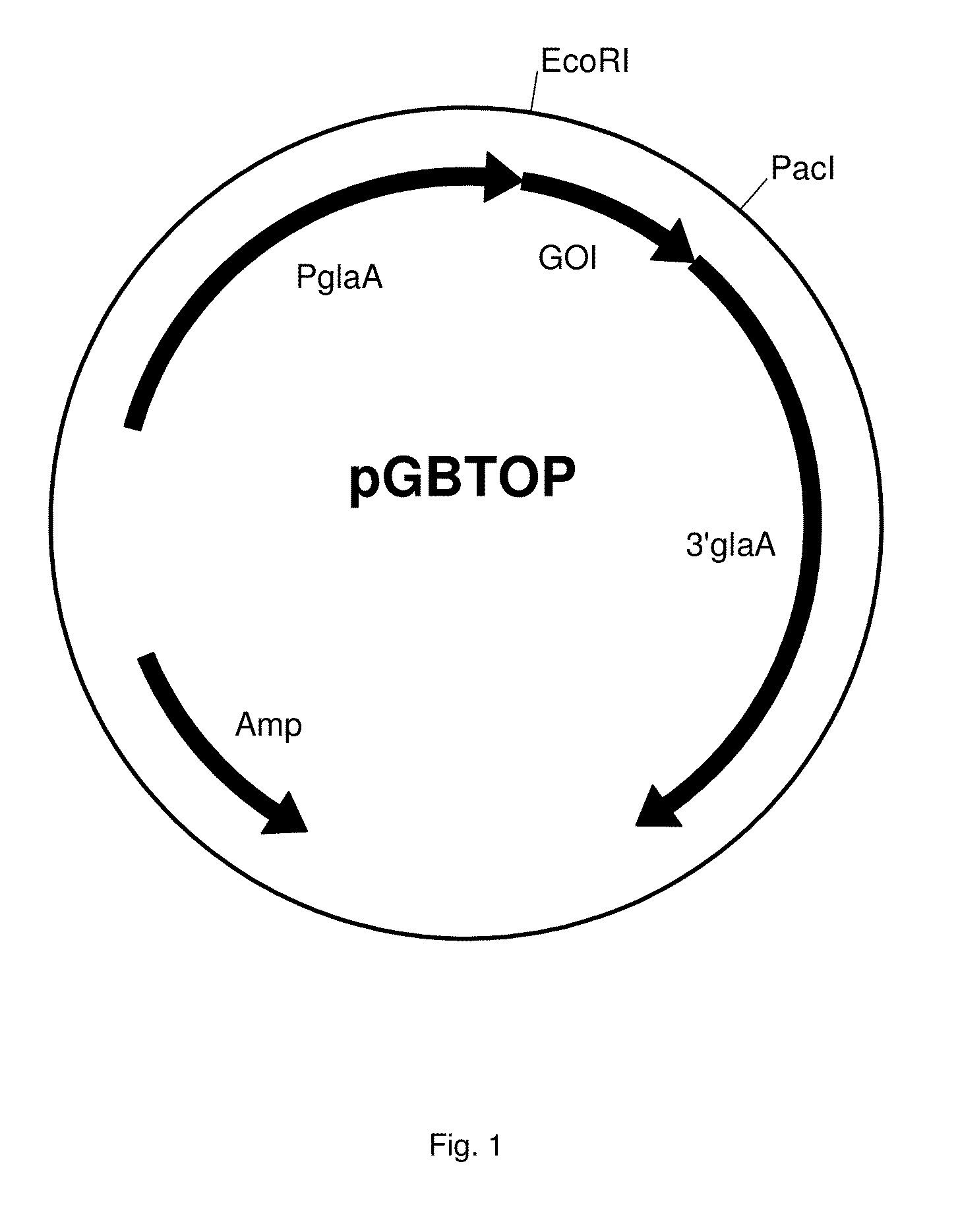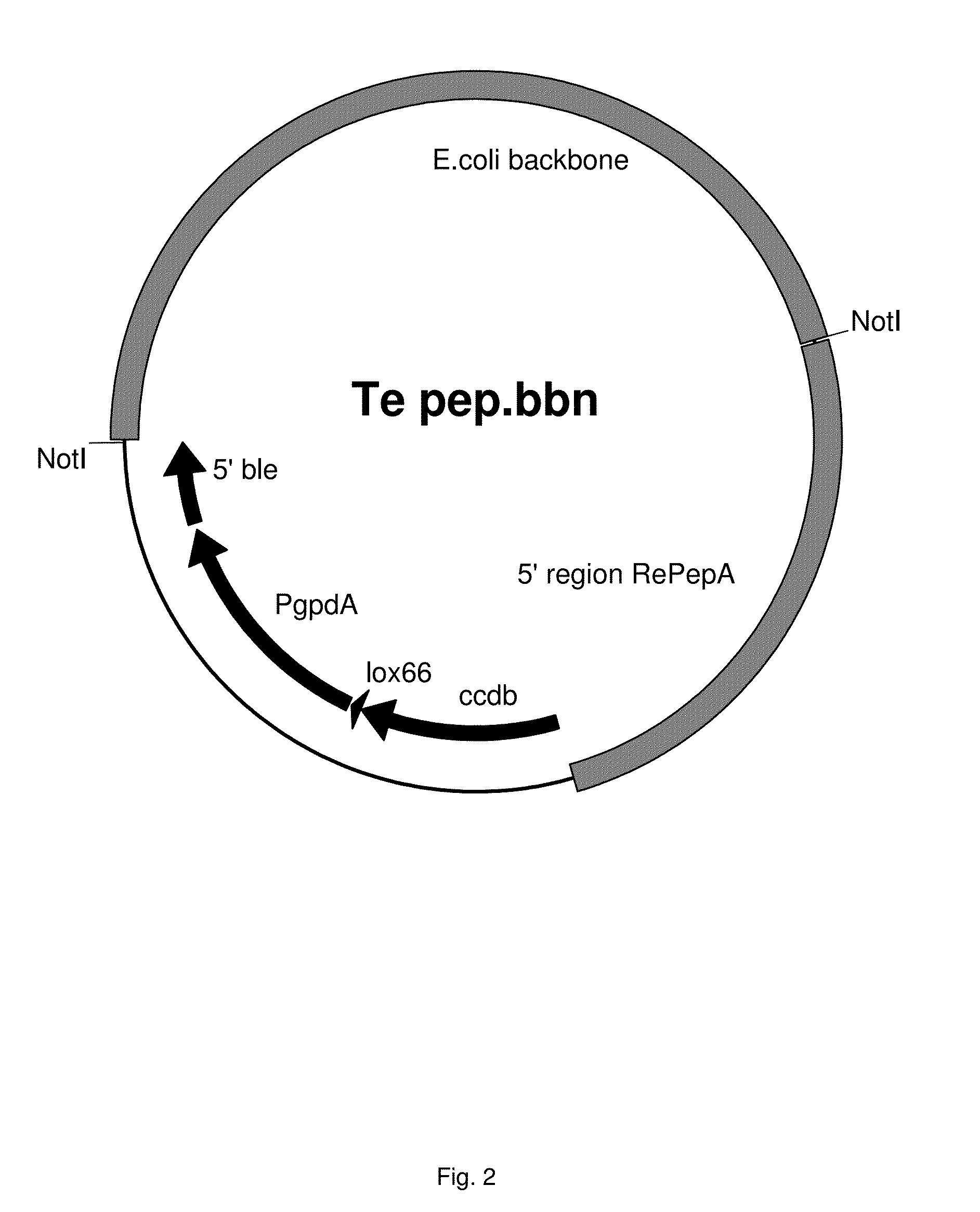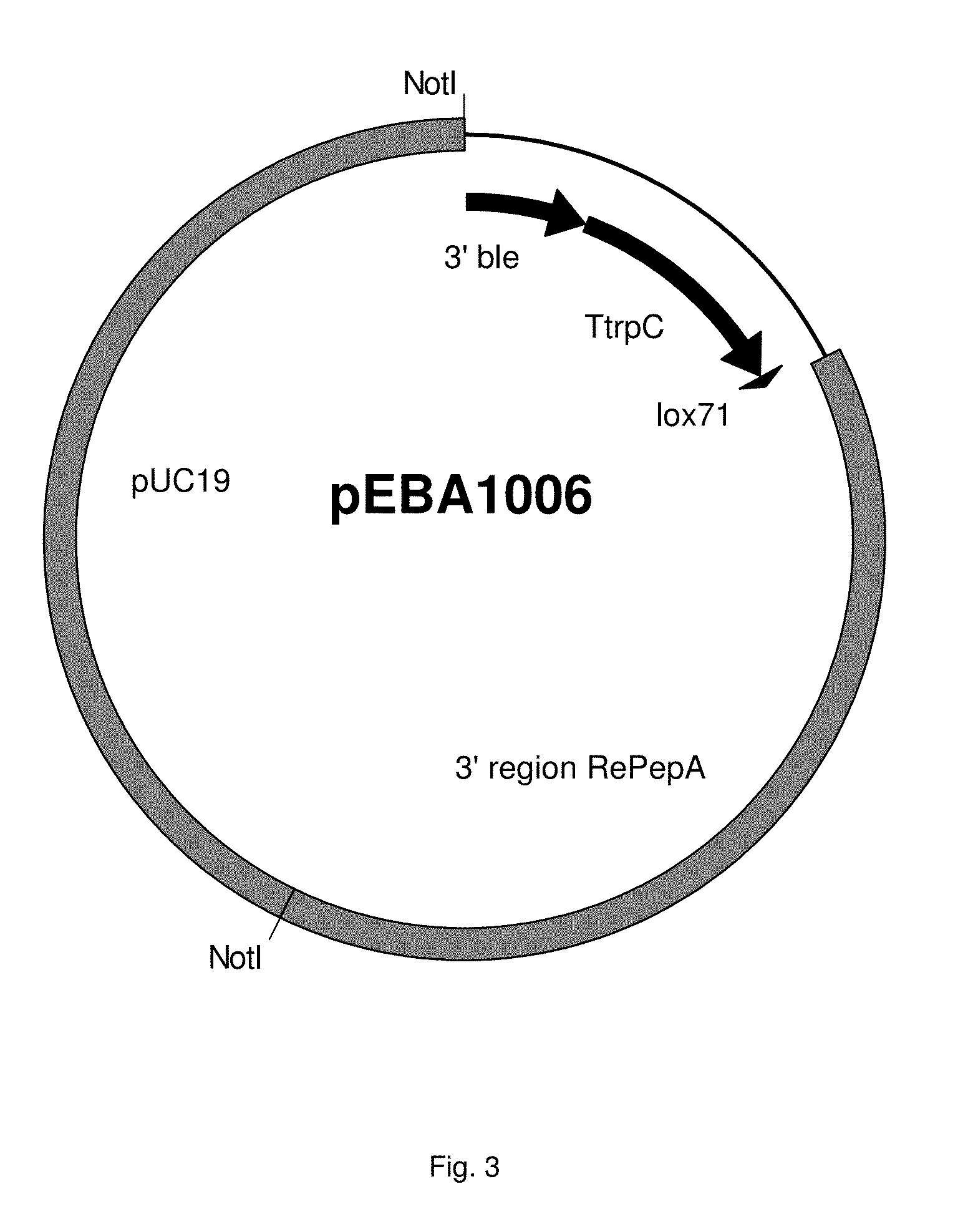Carbohydrate degrading polypeptide and uses thereof
a technology of degrading polypeptides and carbohydrates, applied in the field of carbohydrate degrading polypeptides, can solve the problems of limiting the commercialization of biomass bioconversion processes, the cost and hydrolytic efficiency of enzymes, and the enormous energy potential of these carbohydrates
- Summary
- Abstract
- Description
- Claims
- Application Information
AI Technical Summary
Benefits of technology
Problems solved by technology
Method used
Image
Examples
example 1
Construction of A. niger expression vectors
[0556]This Example describes the construction of an expression construct for overexpression of Temer00088, Temer09484, Temer08028, Temer02362, Temer08862, Temer04790, Temer05249, Temer06848, Temer02056, Temer03124, Temer09491, Temer06400, Temer08570, Temer08163 or Temer07305 in A. niger. Genomic DNA of Rasamsonia emersonii strain CBS393.64 was sequenced and analysed. The gene with translated protein annotated as activity according in Table 1 was identified. Sequences of the R. emersonii Temer00088, Temer09484, Temer08028, Temer02362, Temer08862, Temer04790, Temer05249, Temer06848, Temer02056, Temer03124, Temer09491, Temer06400, Temer08570, Temer08163 and Temer07305 gene, comprising the codon-pair optimised ORF sequence, protein sequence, signal sequence, genomic sequence and wild-type cDNA sequence are shown in sequence listings SEQ ID NO: 1 to 75.
Construction of Expression Plasmids
[0557]The sequence having SEQ ID NO: 1, 6, 11, 16, 21, 26, ...
example 2
Construction of a R. emersonii Expression Vectors
[0560]This Example describes the construction of an expression construct for overexpression Temer00088, Temer09484, Temer08028, Temer02362, Temer08862, Temer04790, Temer05249, Temer06848, Temer02056, Temer03124, Temer09491, Temer06400, Temer08570, Temer08163 or Temer07305 in R. emersonii. The expression cassette was targeted integrated into the RePepA locus.
[0561]In order to target the promoter-reporter constructs into the pepA locus, expression vectors were cloned for targeting. The gene with translated protein annotated as protease pepA was identified in the genome. Sequences of Rasamsonia emersonii pepA (RePepA), comprising the genomic sequence of the ORF and approximately 3000 bp of the 5′ region and 2500 bp of the 3′ flanking regions, cDNA and protein sequence, are shown in sequence listings 76, 77 and 78, respectively.
[0562]Two vectors were constructed according to routine cloning procedures for targeting into the RePepA locus. ...
example 3
Overexpression of Temer00088, Temer09484, Temer08028, Temer02362, Temer08862, Temer04790, Temer05249, Temer06848, Temer02056, Temer03124, Temer09491, Temer06400, Temer08570, Temer08163 or Temer07305 Gene in Rasamsonia Emersonii
[0564]Linear DNA of pEBA and pEBA1006 are isolated and used to transform Rasamsonia emersonii using method as described earlier in WO2011 / 054899. The linear DNAs can integrate together into the genome at the RePepA locus, thus substituting the RePepA gene by the Temer00088, Temer09484, Temer08028, Temer02362, Temer08862, Temer04790, Temer05249, Temer06848, Temer02056, Temer03124, Temer09491, Temer06400, Temer08570, Temer08163 or Temer07305 and ble gene. Transformants are selected on phleomycin media and colony purified and tested according to procedures as described in WO2011 / 054899. Growing colonies are diagnosed by PCR for integration at the RePepA locus using a primer in the gpdA promoter of the deletion cassette and a primer directed against the genomic s...
PUM
| Property | Measurement | Unit |
|---|---|---|
| Fraction | aaaaa | aaaaa |
| Fraction | aaaaa | aaaaa |
Abstract
Description
Claims
Application Information
 Login to View More
Login to View More - R&D
- Intellectual Property
- Life Sciences
- Materials
- Tech Scout
- Unparalleled Data Quality
- Higher Quality Content
- 60% Fewer Hallucinations
Browse by: Latest US Patents, China's latest patents, Technical Efficacy Thesaurus, Application Domain, Technology Topic, Popular Technical Reports.
© 2025 PatSnap. All rights reserved.Legal|Privacy policy|Modern Slavery Act Transparency Statement|Sitemap|About US| Contact US: help@patsnap.com



